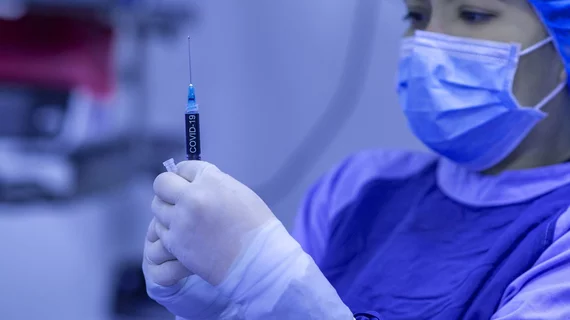Judge halts Biden administration's worker vaccine mandate
A judge has put a stopper in the Biden administration’s COVID-19 vaccine mandate that impacts all healthcare workers.
The mandate, announced by the Centers for Medicare and Medicaid Services (CMS) in early November, requires all healthcare workers to receive at least one dose of a COVID-19 vaccine by Dec. 6, 2021. The mandate applies to roughly 17 million healthcare workers and 67,000 providers.
The administration also stated that all private employers with more than 100 employees ensure their entire staff is fully vaccinated by Jan. 4, 2022, or test weekly for the virus. Employers are also required to mandate masks for unvaccinated individuals by Dec. 5.
However, the mandate has been put on hold for now after federal judge Terry Doughty granted a preliminary injunction, citing CMS’ lack of authority.
“There is no question that mandating a vaccine to 10.3 million healthcare workers is something that should be done by Congress, not a government agency. It is not clear that even an Act of Congress mandating a vaccine would be constitutional. Certainly, CMS does not have this authority by a general authorization statue,” Doughty wrote.
President Joe Biden faced immediate backlash after the mandate was published, with at least two dozen states suing to block it. The rule also came as many healthcare providers already required employees to get vaccinated. Previous lawsuits in November were also successful at pausing the mandate, and the new ruling from Judge Doughty does not cover the 10 states where the rule was already paused.

